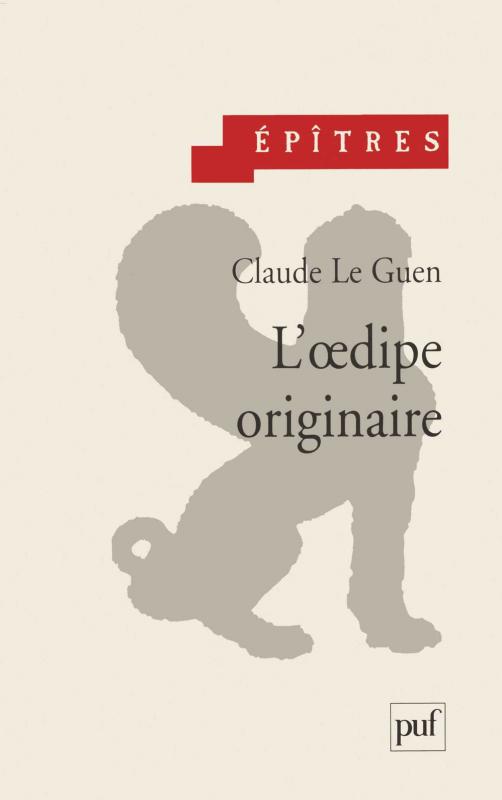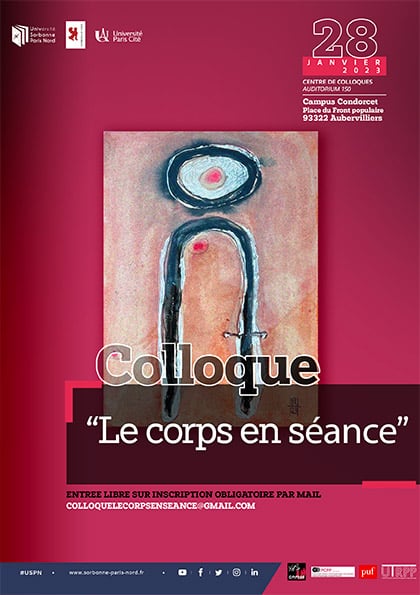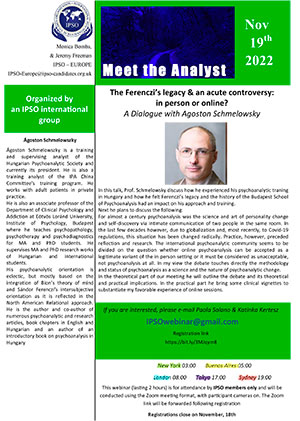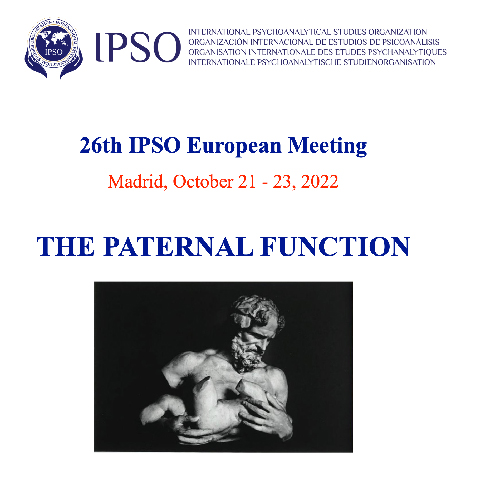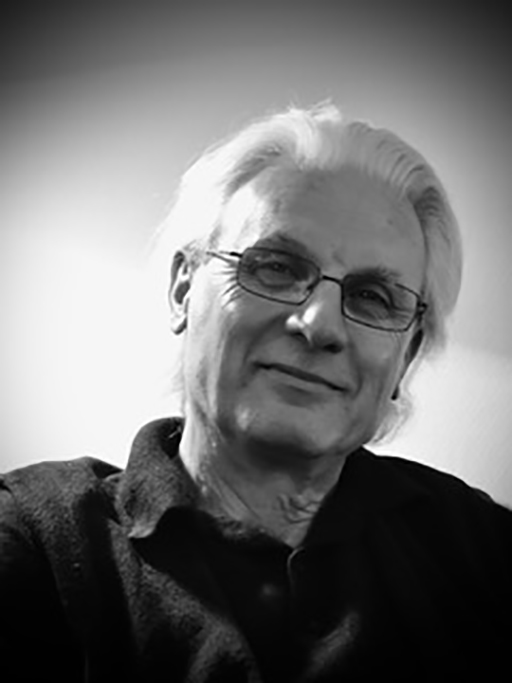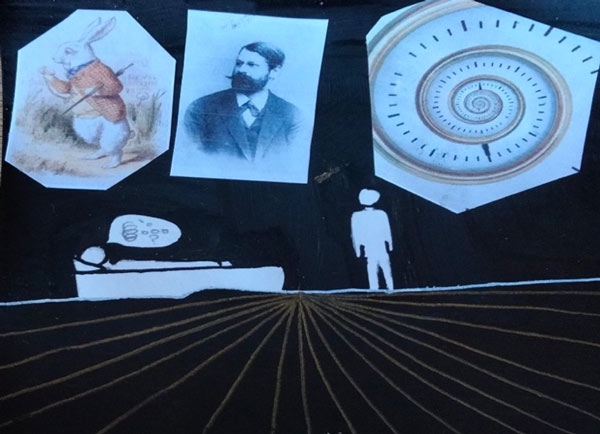Décès de Claude Le Guen (1927-2022)
Claude Le Guen, psychiatre, psychanalyste, avait proposé le concept d’Oedipe originaire…
Société Psychanalytique de Paris
Axelle Fontenay
E-mail : spp@spp.asso.fr
Tél. : 01 43 29 66 70
Caroline Kestens
E-mail : institut@spp.asso.fr
Tél. : 01 43 29 26 19
Aude Galland
E-mail : scientifique@spp.asso.fr
Tél. : 01 43 29 26 16
Nahil-Sarah Wehbe
E-mail : bsf@spp.asso.fr
Tél. : 01 43 36 22 66
Évelyne Beddock, Directrice admin.
E-mail : congres@spp.asso.fr
Tél. : 01 43 29 26 18
Secrétaire de rédaction
Philippe Bonilo
E-mail : rfpsy@spp.asso.fr
Secrétariat
E-mail : contact.cctp@asm13.org
Tél. : 01 53 62 25 25
Philippe Daubry
E-mail : boutique@spp.asso.fr
Axelle Fontenay
E-mail : spp@spp.asso.fr
Tél.: 01 43 29 66 70
Caroline Kestens
E-mail : institut@spp.asso.fr
Tél.: 01 43 29 66 70
Aude Galland
E-mail : scientifique@spp.asso.fr
Tél.: 01 43 29 66 70
Nahil-Sarah Wehbé, Directrice
E-mail : bsf@spp.asso.fr
Tél.: 01 43 29 66 70
Évelyne Beddock
E-mail : congres@spp.asso.fr
Tél.: 01 43 29 66 70
Secrétaire de rédaction
Philippe Bonilo
E-mail : rfpsy@spp.asso.fr
Secrétariat
Tél. : 01 53 62 25 25
Philippe Daubry
E-mail : boutique@spp.asso.fr
Claude Le Guen, psychiatre, psychanalyste, avait proposé le concept d’Oedipe originaire…
de Kathleen Kelley-Lainé Peter Pan, “young innocent and heartless”, with his baby tooth smile is one of the most popular heroes of fiction of both children and adults for over one hundred years. The author explores this mythical figure, both as a story as well as a metaphor, revealing the hidden traumas and psychological conundrums … Lire la suite
Colloque gratuit se tenant sur le Campus Condorcet à Aubervilliers.
La relation analytique qui engage la présence réelle est régie par la règle d’abstinence et l’interdit du toucher.
Samedi 19 Novembre, l’IPSO organise un webinaire avec un analyste hongrois, Agoston Schmelowsky, qui nous parlera de sa formation analytique à Budapest et de l’influence de l’héritage de Ferenczi sur sa pratique clinique à travers un débat sur la psychanalyse en présence ou à distance.
de Jacqueline Schaeffer « Mon corps est à moi » ! clamait-on en 1968. Hélas non ! Le corps féminin est encore à conquérir. Il est soumis aux forces de la destinée que sont les règles, la grossesse, l’accouchement, la ménopause. « On ne naît pas femme, on le devient », énonce Simone de Beauvoir. … Lire la suite
Le Samedi 15 Octobre : 10h-12h, l’IPSO organise un webinaire autour de l’Ecole Psychosomatique de Paris- Pierre Marty. Panos Aloupis et Diana Tabacof, membres de la SPP et de l’Institut de Psychosomatique (IPSO) nous parleront de comment ils en sont venus à s’y intéresser et s’y former et présenteront des vignettes cliniques pour illustrer des concepts théoriques de cette École. L’inscription se fait par le lien sur le flyer.
Freud introduced the concept of the paternal function describing the Œdipus complex; where the father forbids the fusion between mother and infant that goes on for too long, adopting the position of the “third”, opening the transition from the natural to the social order. The impact of the paternal function does not rely on the duration nor type of the physical presence of the father, but rather on his position. He represents the Law. The paternal function can be performed by different institutions or persons, not only necessarily the father himself.
À la lumière du contexte récent de pandémie mondiale et des bouleversements que cela a engendré, Bernard Chervet nous propose un approfondissement théorique sur les différentes notions de réalités auxquels l’analyste est confronté. …
Programme complet des 10 projections de films ou documentaires avec analyse et débat.
Séances ouvertes le 3ème vendredi du mois à 20h15, début de projection à 20h30, destinées aux Analystes en Formation et Membres des Sociétés de Psychanalyse affiliées à l’API.
